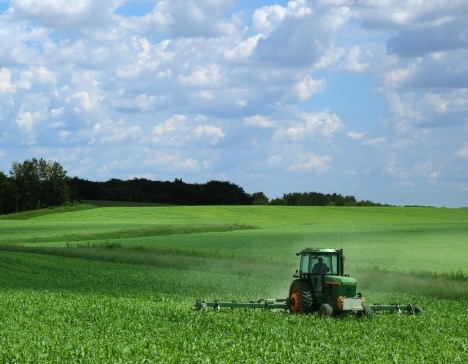| Recently the VBC sat down for a conversation with Hobey Bauhan, President of the Virginia Poultry Federation. Poultry litter (which consists of manure and used bedding material) management in Virginia is generally governed and regulated by the same agencies that oversee the use of biosolids in Virginia. Bauhan, whose experience includes regulatory and legislative matters impacting poultry, was asked to discuss the use and management of poultry litter in Virginia. Through his regulatory and work experience with the Federation, Bauhan has worked on Virginia’s poultry waste management regulations since they were passed by the General Assembly in 1999 and adopted into regulations by the State Water Control Board (Department of Environmental Quality) soon thereafter. In addition to the regulatory program administered by DEQ, the Department of Conservation and Recreation (DCR) and the Virginia Poultry Federation have for many years collaborated to offer a poultry litter transport incentive program, which provides end-users of poultry litter a per-ton payment for application of litter transported from certain poultry-dense counties to areas that can benefit from the litter’s nutrients for crop production. Unknown to many, Rockingham County might just be the poultry capital of the country. Strong relationships among DEQ, DCR, and stakeholders allow for the poultry litter program to thrive, allowing a recyclable product to make a positive impact on Virginia farms across the entire Commonwealth while protecting water quality. “The poultry litter transport incentive program allows Virginia to capture the movement of litter and where it is applied, which must be in accordance with a state-approved nutrient management plan. The litter’s distribution improves soil health and water quality across the Commonwealth,” Bauhan said. One key aspect of the regulatory program, which requires poultry growers to file for coverage under a DEQ general permit and implement a nutrient management plan approved by DCR, is the relationship between the DDEQ and regulated farmers. Bauhan explained how DEQ has taken a compliance-first approach by working closely with farmers to understand the requirements of the regulations. This relationship has allowed landowners to understand and work with the regulatory authority to ensure compliance from the beginning. DEQ periodically pulls together a Technical Advisory Panel to ensure the poultry regulations remain updated. The DEQ regulation and DCR nutrient management and litter transport incentive programs have become a key component of Virginia’s Chesapeake Bay Program. Similarly, the VBC works with DEQ to facilitate regulatory compliance within the biosolids program. The VBC Annual Report on the Code of Best Practice highlights the ongoing efforts of VBC member companies to exceed compliance goals with Virginia’s extensive regulatory requirements for biosolids. In addition to the VBC Annual Report on the Code of Brest Practice, the VBC hosts educational programs for its members. These virtual events include DEQ and researchers providing updates on the regulatory and research aspects of the biosolids industry. These are similar to theVirginia Poultry Federation “Lunch and Learns”, where DEQ has the opportunity to meet with growers of poultry. This environment allows DEQ to provide new insights and updates to regulations, while also giving growers the opportunity to ask questions. “Biosolids are an endless renewable resource. In Virginia, the regulation of biosolids is a very public and transparent process. VBC continues to serve as a leader in communicating public health and safety facts. Our collective role in public health is never lost in any operation or on any VBC member. We take our role in research, management, and communication seriously,” said John Uzupis, VBC President. Poultry litter and biosolids are intensely regulated across the Commonwealth, and the use of poultry and biosolids is valued by landowners who choose to use these materials. Much like the Poultry Federation, VBC is proud to serve as a leader in best practices, research, and technology. |
